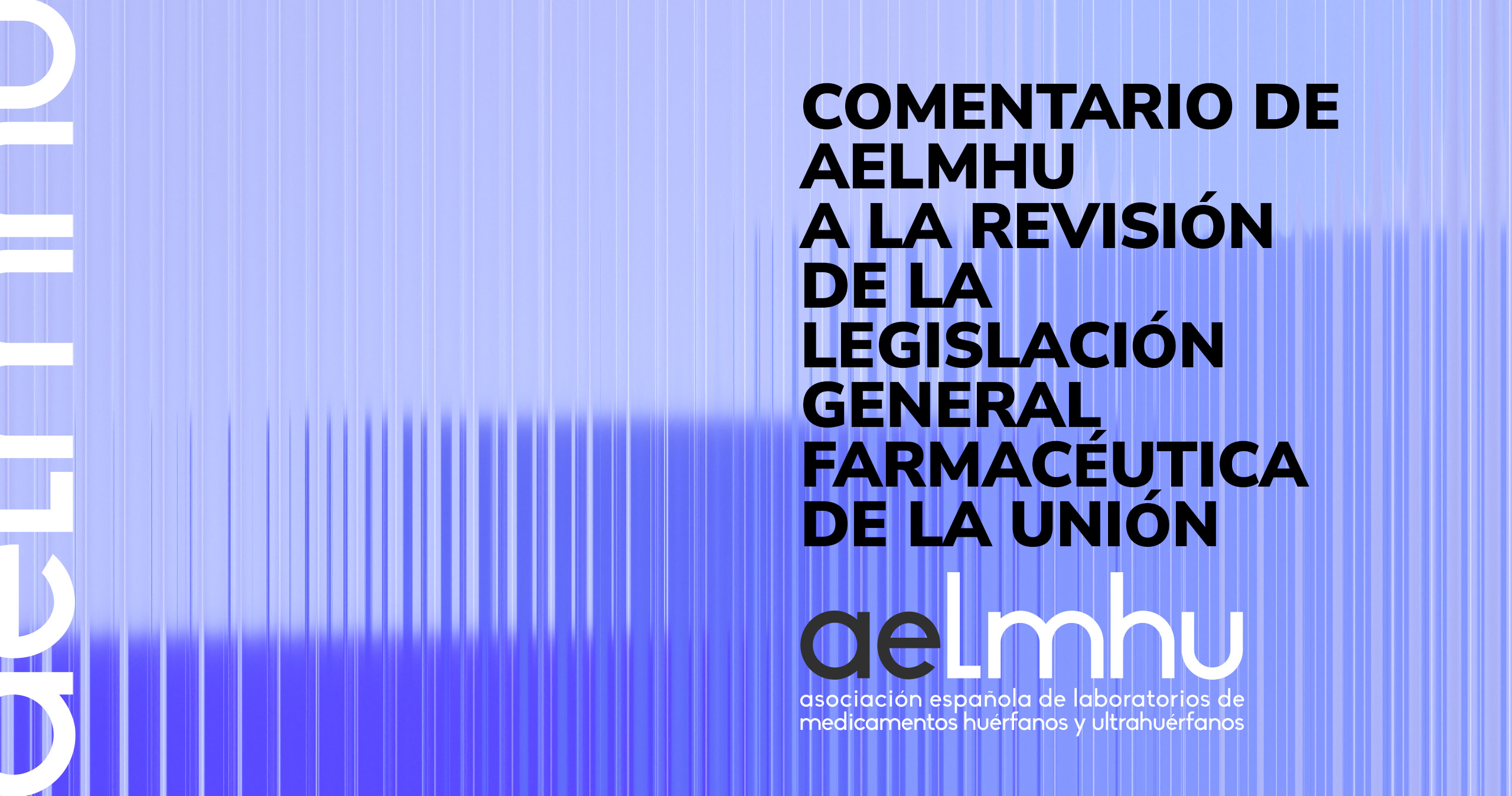Asociación Española de Laboratorios de Medicamentos Huérfanos y Ultrahuérfanos, a non-profit organization that brings together 25 biotechnology and pharmaceutical companies committed to the discovery, research, development and commercialization of innovative therapies capable of improving the situation of patients living with rare and ultra-rare diseases, welcomes the opportunity to participate in this consultation.
The association recognizes the need to update the European legal framework that regulates orphan drugs in order to continue working in an incentive environment. In this regard, we welcome the efforts made to reduce the regulatory and administrative burden to promote scientific advances and the objectives that the reform aims to achieve. However, we are concerned about certain measures and sections of the two legal instruments that, in our opinion, could, particularly in a sector as complex as that of orphan drugs, harm R&D efforts, the interest in innovation and the competitiveness of the European market, and produce an effect contrary to that sought by the reform.
For these reasons, our comments focus on proposals related to high unmet medical needs (HUMN) and unmet medical needs (UMN); the reduction of the period of market exclusivity and linkage to the active substance of a medicinal product; measures addressing equity in access and innovation among Member States; the reduction of the length of regulatory time periods for data protection; and, finally, access times to medicinal products.
In summary, rare disease research is a long, costly and highly unpredictable process that requires a long-term vision and well-established legal certainty. Conditions such as linking innovation incentives to definitions such as HUMN, or commercial exclusivity of an active substance, create uncertainty within the research field and increase the risk of disincentivizing research, including exploration of the full potential of a single active substance. We detailed our concerns around changes in market exclusivity and data protection regulatory conditions, which now offer as "extra" years, ways to, in reality, maintain existing exclusivity, increasing the burden on laboratories, with possible negative repercussions for patients. We also stress that elements such as the conditions of an EU market launch, or measures to improve drug approval times must consider the particularities of the different markets and their approval times.
Our commentary contains a total of 8 concrete recommendations and, by encouraging an active dialogue with all interested parties, we place ourselves at the complete disposal of the European Commission and all European institutions for future exchanges.
